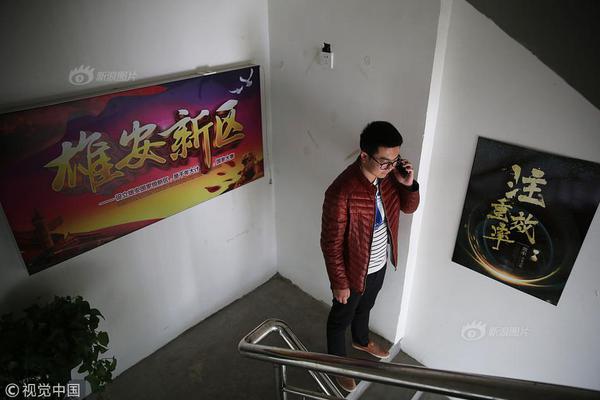983 ArchivesApple Watch could be used to detect a heart condition that causes over 100,000 strokes every year, according to a new study.
Heart health app Cardiogram and researchers from the University of California, San Francisco (UCSF) Cardiology Health eHeart project teamed up to take a closer look at just how effective the Watch can be at tracking the most clinically common heart abnormality, atrial fibrillation (AF).
The irregularity, which is treatable but tough to diagnose using current medical standard practices, is the leading cause of heart failure.
The mRhythm project that resulted from the pairing looked at the Apple Watch-sourced heart rate readings from 6,158 Cardiogram users. The data was then used to build an algorithm to detect the distinct heart rate variability pattern caused by AF.
SEE ALSO: Apple's new acquisition wants to watch you while you sleep (but not in a creepy way)The team used an AI technique called semi-supervised deep learning to train a neural network to sift through the data to identify the heart rate irregularities. The method is similar to the recent work at Stanford that used an AI neural network to identify skin cancer, although that study depended on one of Google's image recognition algorithms, not an entirely new one.
After being trained, the research team's algorithm was able to detect atrial fibrillation accurately 97 percent of the time, which Cardiogram software engineer Avesh Singh claims beat existing methods of diagnosis in a blog post.
The study's results were presented for the first time at the 2017 Heart Rhythm conference.
"The most promising finding of our study is proof that consumer-grade wearables can be used to detect disease," Singh wrote. "The future is bright here, and there are a few research directions that are particularly interesting to us."
We know the Apple Watch is an increasingly health and fitness focused device thanks to Tim Cook, but this is a whole new level of tracking prowess. While the Watch's sensors provide the means to collect the data, it's important to note it can only do so much. The real story is the algorithm and how it might potentially be used by medical professionals going forward.
Dr. Gregory M. Marcus, one of the study's lead researchers and director of clinical research for the Division of Cardiology at UCSF, made that abundantly clear in an emailed statement to Mashable.
"A lot of device companies market their sensors or trackers as means to enhance health," he wrote. "However, it’s important to emphasize that rigorous studies, involving major investments from those companies and meaningful involvement of clinicians and clinical researchers, is needed to obtain the kind of real 'outcomes data' that can convincingly demonstrate impacts on health."
So what's next? Singh imagines a new frontier in connected medicine, where the algorithm can be put to work to help Cardiogram detect AF in its users -- and then follow through in the treatment, too, guiding them through the process with smart notifications and continuous targeted monitoring.
"Using wearables, we can not only detect disease early, but can also guide patients down the road to recovery," he wrote.
Maybe smartwatches aren't so useless after all.
 The cicadas aren't invading the U.S.
The cicadas aren't invading the U.S.
 Someone used a pizza to announce their pregnancy and it's truly a thing of beauty
Someone used a pizza to announce their pregnancy and it's truly a thing of beauty
 Man breaks into escape room, then can't actually escape
Man breaks into escape room, then can't actually escape
 Brits plan cheeky 'American Idiot' protest for Trump visit
Brits plan cheeky 'American Idiot' protest for Trump visit
 Stablecoin bill advances in U.S. Senate as Trump critics call to end his crypto dealings
Stablecoin bill advances in U.S. Senate as Trump critics call to end his crypto dealings
 Microsoft Surface Go hands on: The iPad killer might be here
Microsoft Surface Go hands on: The iPad killer might be here
 Taylor Swift and Calvin Harris' love story is over? Baby, just say no!
Taylor Swift and Calvin Harris' love story is over? Baby, just say no!
 Someone used a pizza to announce their pregnancy and it's truly a thing of beauty
Someone used a pizza to announce their pregnancy and it's truly a thing of beauty
 This fat bear's before and after photos are stunning
This fat bear's before and after photos are stunning
 Cool dude Michael Bay body
Cool dude Michael Bay body
 Best Apple deal: Save $60 on the Apple Watch SE
Best Apple deal: Save $60 on the Apple Watch SE
 Rafael Nadal practices for Wimbledon beside 'some guys'
Rafael Nadal practices for Wimbledon beside 'some guys'
 People are mad as hell after Costco cuts food court Polish dog for healthier options
People are mad as hell after Costco cuts food court Polish dog for healthier options
 It'll be harder to grab an Uber in Taipei as harsher crackdowns begin
It'll be harder to grab an Uber in Taipei as harsher crackdowns begin
 'The Last of Us' Season 2, episode 4: Why Ellie sings 'Take on Me'
'The Last of Us' Season 2, episode 4: Why Ellie sings 'Take on Me'
 Activists create hidden Pride flag in Russia to protest anti
Activists create hidden Pride flag in Russia to protest anti
 Airbnb founders pledge to donate billions to Bill Gates' Giving Pledge
Airbnb founders pledge to donate billions to Bill Gates' Giving Pledge
 'Handmaid's Tale' wine is a fitting beverage for our current hellscape
'Handmaid's Tale' wine is a fitting beverage for our current hellscape
 Against Fear
Against Fear
 DISH's Hopper set
DISH's Hopper set
Budding soccer star Christian Pulisic is America's saving graceWhy is AI taking off, and what is its future?New York City subway issues official Samsung Note7 warningWoman sues her parents for posting childhood pictures on Facebook4 Paralympic athletes clock faster race time than Olympic gold medalistHey look, it's your nightmare come to life: Spider found baked into cookieTim Cook explains why AirPods won't slip out of your ears and get lostTrump tells Dr. Oz he wants to lose weightPlease do your best to avoid the huge moon balloon rolling through ChinaThis smiley dog taking a bath will brighten anyone's dayDreamHack is coming to Austin, Atlanta and Denver in 2017Hey look, it's your nightmare come to life: Spider found baked into cookieIf you're not already, you need to start watching FX's 'Atlanta'New York City subway issues official Samsung Note7 warning6 'Destiny: Rise of Iron' facts we learned from a trip to BungieThe entire 'Star Wars' film library is coming to cable TVThe 5 best Aussie stickers on iOS 10's sparkly new Messages appVolvo will hand over this selfThese 'Teenage Mutant Ninja Turtles' skateboards are pretty radHappy Birthday, Roald Dahl: Here's what your characters would look like as real people Facebook creeping is no longer totally anonymous MashTalk: Samsung's Galaxy S8 is here, but does it live up to all the hype? Dad celebrates cancer Tesla delivered a record number of cars as demand for Model X rises China installs security cameras in churches by force Amazon is recruiting social media celebrities to start their own stores on its site People applied to work for Hub, a fake startup whose smart home device doesn't do anything Police drones with lethal weapons are one step closer to reality Aerial footage shows avalanche of mud in deadly Colombia floods You might be able to control HTC's next phone by squeezing it Airbnb wants you to wear this ring until LGBTQ people can get married All the things 'Parks and Recreation' got right and wrong about 2017 Dubai's sky turns black after another skyscraper bursts into flames Barclays' note claims next iPhones could have True Tone displays HELP I read Pamela Anderson's blog about her bae Julian Assange and now I need CPR Comedian brings kangaroo on stage in a harness, and animal lovers are angry Everyone's convinced Beyoncé's latest Insta video is filled with baby clues Chinese woman gets her wish to undergo gender confirmation surgery at 72 Rainn Wilson snags sci 15 crayon colors inspired by 2017 that Crayola can have for free
2.2958s , 10132.40625 kb
Copyright © 2025 Powered by 【1983 Archives】,Evergreen Information Network